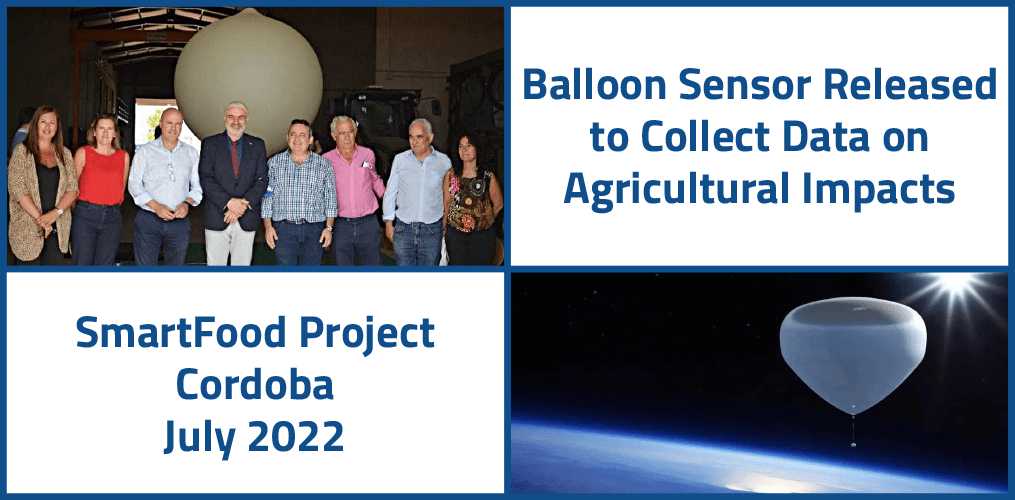
Andalusia, the region home to the LifeWatch ERIC Statutory Seat and ICT-Core, drives the innovative Smartfood Project in the agricultural and fishing sectors. SmartFood is led by the Andalusia Agency for Agriculture and Fisheries Development (AGAPA), which is part of the Junta de Andalucía, and its aim is to better understand the impact of agriculture on the region’s biodiversity. On Monday 18 July, in Cordoba, a project event was held in which a balloon sensor probe was released, attended by LifeWatch ERIC CEO, Christos Arvanitidis, CTO, Juan Miguel González-Aranda, Project Coordinator, Rocío Moreno Domínguez, Direction Secretary and QARM/FitSM Technical Assistant, María Luz Vázquez Santana, and Satellite & HAPS Operations Manager for Earth Observations and Navigation Applications, Jaime Lobo.
The first flight of the balloon sensor probe took place on Cordoba University Campus, called ‘Rabanales’, with the principal aim of gathering data on the agricultural impact on a natural environment, as well as identifying and quantifying variables associated with ecosystem services in the agricultural sector.
AGAPA Director, José Carlos Álvarez Martín, commented on the importance of governamental institutions like Junta de Andalucía supporting projects as Smartfood, given the strategic importance of the agriculture and fishing sectors.
In the same vein, Dr Arvanitidis noted that the Andalusian region is a strategic European partner, due to its agricultural potential and natural protected areas becoming a hotspot for the development of these kinds of projects.
Finally, Dr González-Aranda highlighted that these types of projects are essential for sustainability development and innovation, so that we can measure the impact of climate change in order to advise better decision-making based on FAIR data. He also mentioned the importance of optimising existing distributed resources by improving our understanding of their associated ecosystem services.